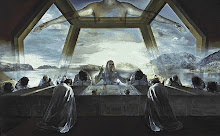Comparative Religion
Fall 2007
Person High School
Mr. Solomon
Room 117
2nd Period
Course Objectives
This course introduces the world’s major religious traditions. Topics include Primal religions, Hinduism, Buddhism, Islam, Judaism, and Christianity. Upon completion, students should be able to identify the origins, history, beliefs, and practices of the religions studied.
STUDENT REQUIREMENTS
A student taking this course will be expected to:
participate in all class discussions, projects and assignments.
develop a sensitivity to and appreciation for other people’s concepts regarding religion.
study materials presented in class and in the readings.
complete homework assignments.
pass quizzes and tests at a minimum proficiency level.
read one assigned out of class book.
complete at least one research project per nine weeks in which he/she takes a position on a
religious issue and defends it with evidence and explanations.
utilize library resources and technology effectively to complete assignments.
attend class in compliance with the school district attendance policy.
Course of Study
In Comparative Religions, we will be studying the following:
Early religions
Various polytheisms such as Egyptian, Mesopotamian, Greek, Roman, and Norse
along with their modern forms
Shamanistic religions such as African, Native American, Polynesian, and Australian Aborigine including modern forms
Nature worshipping religions such as Shinto, and Wicca among other unnamed and modern forms
The Goddess religion
Monotheism in the World – Judaism, Zoroastrianism,
Christianity, and Islam
Development and history of the faiths
Religious leaders and prophets
the Ten Commandments and its impact on
modern law
Critique of the monotheistic texts
Development of Jewish, Christian, and
Islamic sects
Practices, beliefs, and rituals
Contributions, comparisons, and impact of
the faiths in the world today
Religious Thought in India – Hinduism,
Buddhism, Jainism, and Sikhism
Development and history of the faiths
Development of different sects and
branches
Religious leaders and prophets
Practices, beliefs, and rituals
Contributions, comparisons, and impact of
the faiths in the world today
Religious Thought in China and Japan
Taoism, Confucianism, and Shinto
Development and history of the faiths
Religious leaders and prophets
Practices, beliefs, and rituals
Contributions, comparisons, and impact of
the faiths in the world today
Comparison of philosophical thought and religious experience
The Future of Religion
Modern influences on religion
Secularism
Cults and non-traditional religious beliefs
Behavior Expectations
At all times students will
Be Respectful
Pay Attention
Work towards achieving the course objectives
Come to class prepared and ready to learn
The Science of Religion; The Religion of Science
Read this doc on Scribd: RICHARD DAWKINS - Religion of Science
Subscribe to:
Post Comments (Atom)




























No comments:
Post a Comment